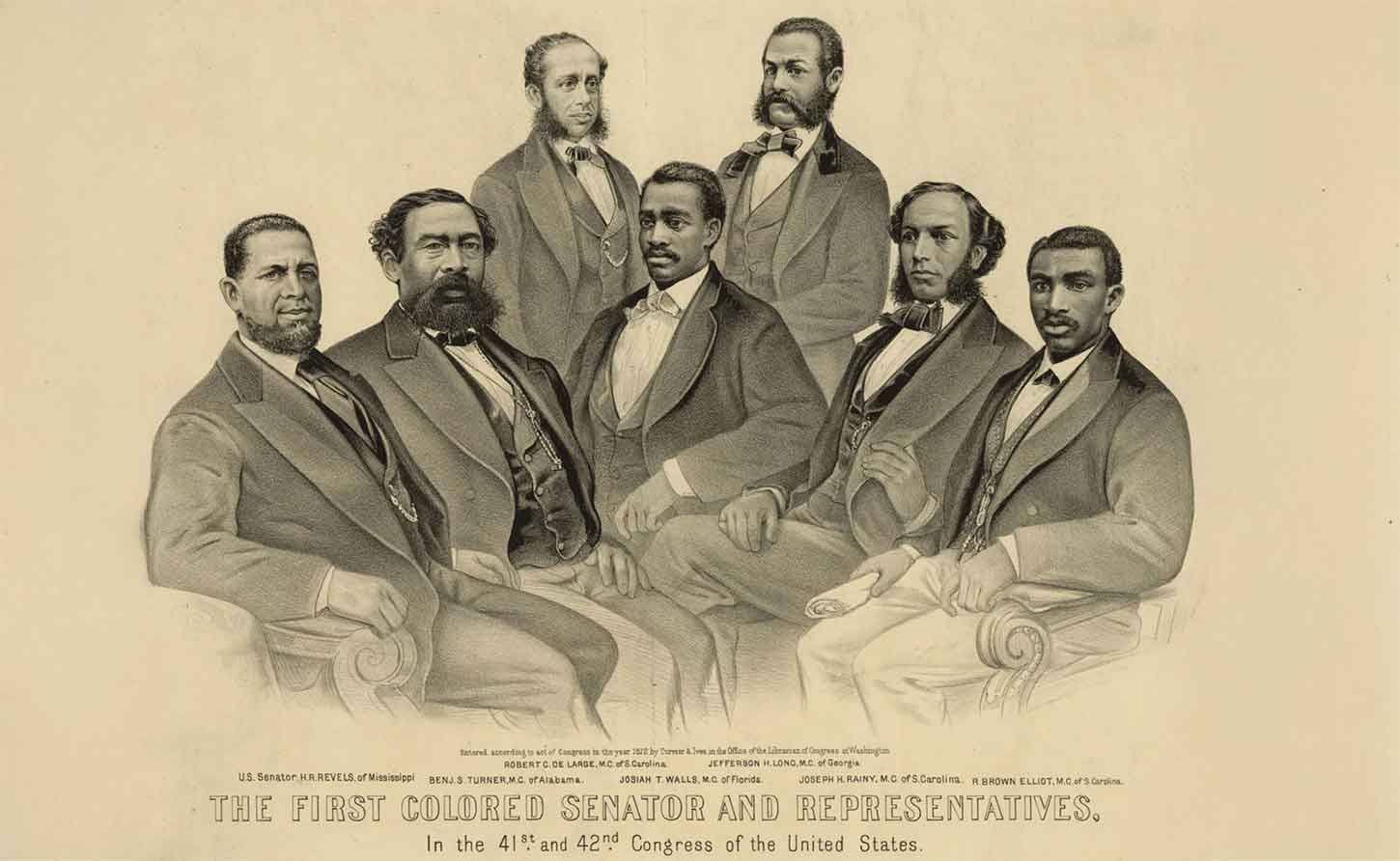DIASPORA | The American Betrayal Pattern: What Lincoln's Legacy Teaches the Caribbean About Political Promises

MONTEGO BAY, Jamaica, August 22, 2025 - The annual Juneteenth celebrations across America carry a bitter irony that resonates deeply throughout the African diaspora in the Caribbean. While millions commemorate June 19, 1865—the day enslaved Texans finally learned of their freedom—the broader story reveals a troubling pattern of political betrayal that Caribbean nations know all too well.
In a recent analysis, former MSNBC anchor Joy-Ann Reid who now boasts her own Joy Reid Show on YouTube, laid bare this American tradition of abandoning Black communities when political convenience calls, a pattern that offers sobering lessons for the Caribbean about trusting powerful allies.
Reid's examination of Lincoln's legacy shatters comfortable myths that many across the Americas have embraced. The "Great Emancipator," she reveals, believed Black people to be "genetically inferior to white people" and preferred shipping freed slaves to distant colonies rather than integrating them into American society.
His administration's recognition of Liberia in 1862—that tragic experiment where freed American slaves became oppressors of indigenous Africans—mirrors the colonial "solutions" that Caribbean territories knew all too well.
Lincoln's Complex Legacy - Parallels Across the Americas
The Caribbean understands Lincoln's contradictions intimately. Just as Lincoln declared slavery morally wrong while denying Congress's right to interfere with Southern institutions, Caribbean colonies experienced their own version of gradual, conditional emancipation.
The British Emancipation Act of 1833, precipitated by the Sam Sparpe war of 1831-82 in Jamaica, didn't immediately free Caribbean slaves—it created an "apprenticeship" system that extended bondage for years, much like Lincoln's Emancipation Proclamation that freed only slaves in rebellious territories while leaving others in chains.
Reid's revelation about Lincoln's vice presidential switch proves particularly instructive for Caribbean observers. When Lincoln abandoned the genuinely progressive Hannibal Hamlin for the racist Andrew Johnson in 1864, he established a template of political expedience over principle that would haunt American-Caribbean relations for generations.
Johnson's subsequent betrayal of Reconstruction echoes in every broken American promise to Caribbean nations—from unfulfilled aid packages to abandoned trade agreements when domestic politics shift.
The limited scope of the Emancipation Proclamation—exempting Union-controlled Confederate areas and border states—reveals the same calculated approach Caribbean colonies experienced. Freedom came not from moral conviction but from military necessity, just as Caribbean emancipation often followed economic calculations rather than humanitarian concerns.
The Texas Delay and Caribbean Echoes
The two-year delay before news of emancipation reached Texas resonates powerfully across the Caribbean, where colonial information traveled at the convenience of those in power. Reid's account of Major General Gordon Granger arriving in Galveston on June 19, 1865, to deliver freedom's message mirrors countless Caribbean experiences of delayed liberation.
Caribbean islands learned early that distance could be weaponized. Just as Texas slaveholders concealed the Emancipation Proclamation from their human property, colonial administrators across the Caribbean routinely delayed implementing metropolitan directives that might disrupt local power structures. The 250,000 enslaved Texans who remained ignorant of their legal freedom parallel Caribbean experiences where colonial officials selectively enforced laws from London, Paris, or Amsterdam.
Shane Bolles Walsh's observation that "it immediately changed the game for 250,000 people" when Granger arrived speaks to a Caribbean truth: real change required physical presence and enforcement, not just distant proclamations. Caribbean freedom movements understood this reality, which is why independence required not just legal recognition but the actual departure of colonial forces.
The Great Betrayal of 1877 and Its Caribbean Implications
Reid's analysis of the Compromise of 1877 reveals the moment when American political promises to Black citizens collapsed entirely. When Republicans withdrew federal troops from the South to secure Rutherford Hayes's presidency, they established a template of abandoning vulnerable communities for political gain that Caribbean nations have witnessed repeatedly in US foreign policy.
The end of Reconstruction after just twelve years of "wildly successful" progress in states like South Carolina and Louisiana demonstrates how quickly political winds can shift. Caribbean nations, many of which achieved independence during the 20th century, recognize this pattern in American responses to regional challenges. Support for Caribbean democracy and development often evaporates when domestic American priorities change, leaving island nations to face resurgent authoritarianism or economic crisis alone.
The informal nature of the 1877 compromise—conducted in secret between Republican allies and Southern Democrats—mirrors how Caribbean concerns are often traded away in broader American political calculations. Whether it's immigration policy, climate change response, or trade agreements, Caribbean nations have learned that their interests can be sacrificed for American domestic political convenience.
Modern Resonance - From Texas Gerrymandering to Caribbean Democracy
Reid's connection to contemporary Texas gerrymandering—where Democrats were essentially forced to sign "slave lease permission slips" to leave a locked legislative chamber—illustrates how these historical patterns persist. For Caribbean observers, this resonates with ongoing concerns about American electoral integrity and its implications for regional democracy promotion.
Caribbean nations watching American democracy struggle with voter suppression, gerrymandering, and political violence must question whether the United States can credibly champion democratic values internationally when it struggles to maintain them domestically.
Learning from the Pattern
The Caribbean's relationship with American power has always required navigating between opportunity and vulnerability. Reid's historical analysis confirms what many Caribbean leaders have long understood: American political promises, however well-intentioned, remain hostage to domestic political calculations.
The lesson isn't to reject American partnership, but to enter it with clear eyes. Lincoln's legacy teaches us that even leaders capable of moral clarity can abandon principle when political survival demands it. For the Caribbean, this means building resilient institutions, diversifying partnerships, and never relying solely on any single power's goodwill—no matter how historic or celebrated their rhetoric might be.
[Word count: 897]
-30-
